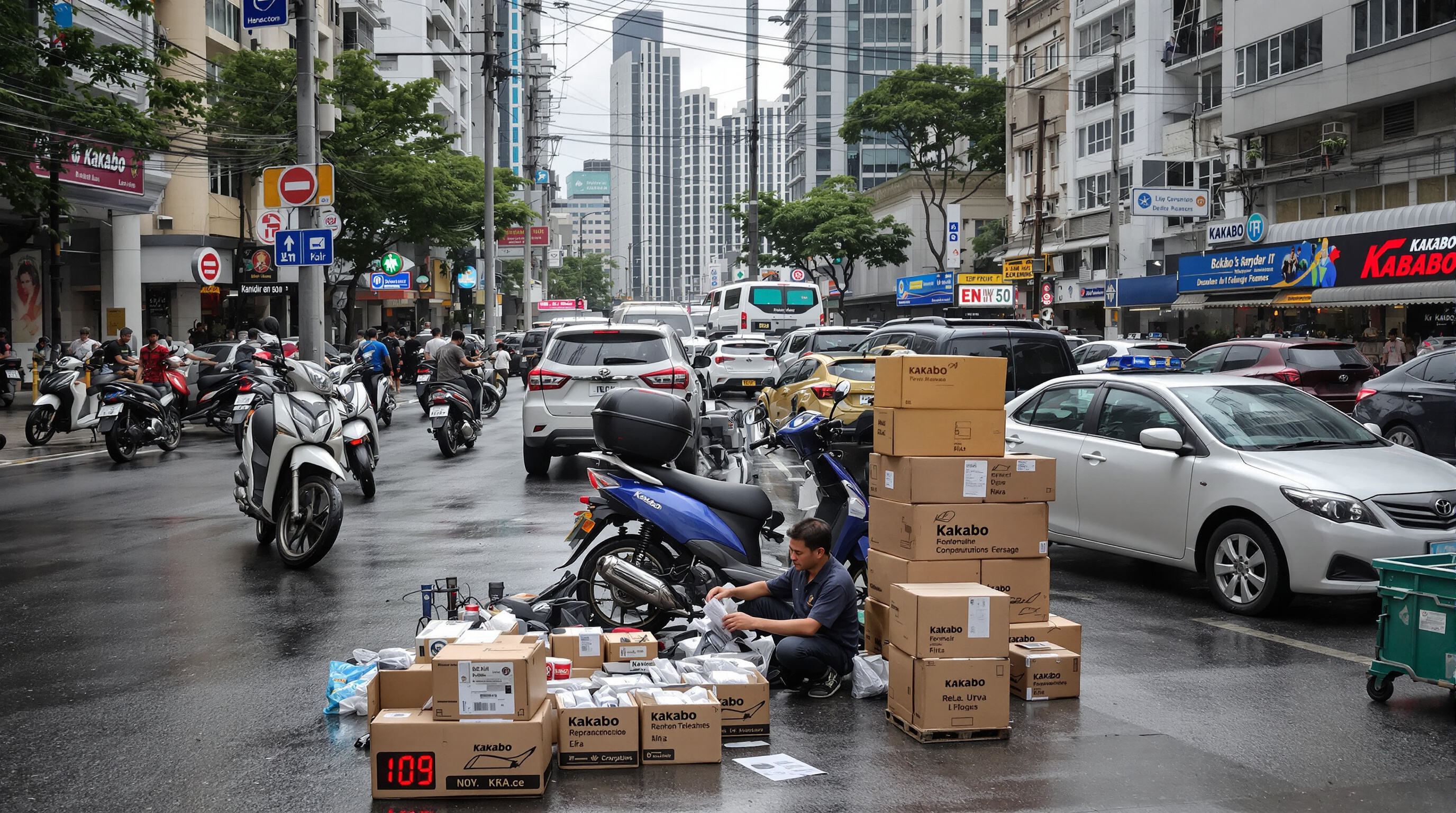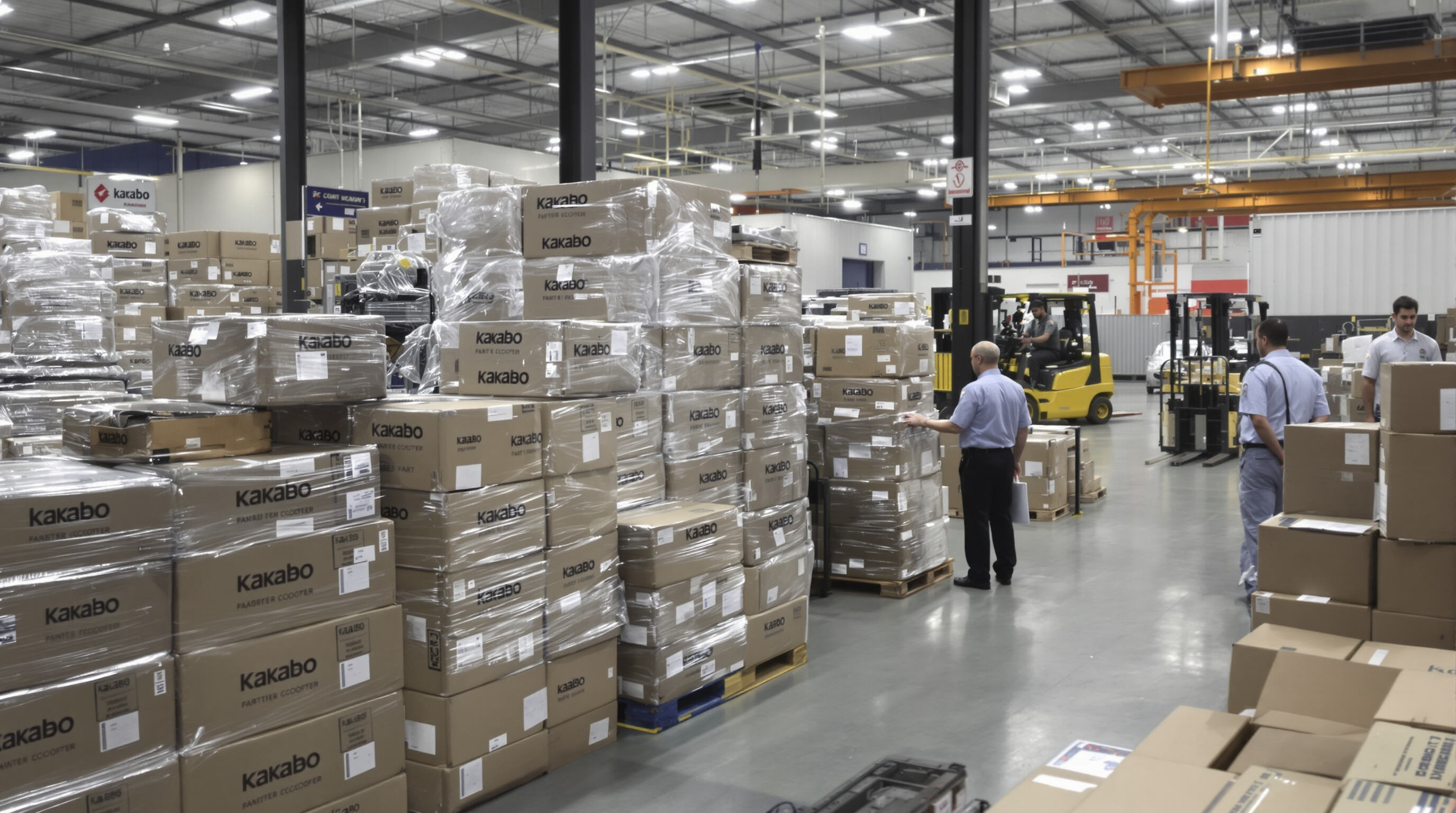
The fast pace of city growth and new infrastructure projects across Southeast Asia and Africa has really boosted the need for Kaabo scooter components lately. Take Jakarta and Lagos for instance where people bought almost 80% more parts last year compared to the previous one according to some industry reports from 2023. Local governments there have been pushing for alternatives to cars because roads are getting so crowded, and scooters fit the bill nicely. All this activity is creating quite a buzz in the market too. We're looking at around 740 million dollars worth of replacement parts being sold globally by mid next decade. Meanwhile over in Asia Pacific region, accessory sales for electric scooters should keep climbing at about 14 percent each year until 2026. Waterproof batteries and upgraded braking systems happen to be what customers want most when replacing parts on their Kaabo scooters right now.
Tokyo and Seoul now operate over 300,000 shared folding e-scooters, resulting in a 53% increase in Kaabo tire and motor replacements since Q3 2022. Municipal safety mandates requiring monthly inspections for shared fleets ensure steady demand for OEM-certified parts, reinforcing the need for reliable, high-performance replacements.
The EU’s EN 17128:2023 standard now requires certified suspension kits and LED lighting systems for e-scooters exceeding 25 km/h. Compliance deadlines have driven a 112% surge in Kaabo parts orders from German and French distributors since January 2024, highlighting the regulatory tailwinds shaping European aftermarket demand.
Brazil’s hilly urban landscapes have boosted sales of Kaabo’s 1,800W dual-motor kits by 67% in 2023. In Mexico City, the "Via Verde" initiative subsidizes commuters using scooters with IP65-rated components—aligning perfectly with Kaabo’s weather-resistant designs and driving regional demand for durable, high-torque upgrades.
| Region | Parts Growth | Top Replacement Components | Key Driver |
|---|---|---|---|
| APAC | 52% | Waterproof controllers, tubeless tires | Monsoon climate regulations |
| Europe | 39% | Brake pads, suspension arms | EN 17128 compliance deadlines |
| Latin America | 31% | Dual motors, reinforced frames | Mountainous urban infrastructure |
Source: 2024 Global Urban Mobility Index
What makes Kaabo stand out? High performance engineering is definitely part of it. Their scooters come equipped with a 500W rear hub motor that can actually reach up to 1092W when needed, plus they hit speeds around 25mph. These specs work really well in crowded cities such as Paris and Jakarta according to Fox40's analysis. A lot of people across Europe keep coming back because of things like those waterproof battery cases and brakes that can be swapped out easily. And let's not forget about those fancy TFT screens paired with NFC technology. Commuters who love their gadgets appreciate being able to track all sorts of ride data while zipping through traffic.
Kaabo has designed their products so that parts work across different models in about 90% of their folding electric scooters. Take the 48V 10.4Ah battery for instance it actually works on both the Mantis and Skywalker series. This saves a lot of time when delivery companies in Latin America need replacements. And things get even better in Asia where they promise to restock spare parts within three days. When looking at how easy it is to fix these scooters, Kaabo stands out as probably the best option around for anyone concerned about maintenance efficiency.
Kaabo is dealing with a serious problem of fake parts worth around $47 million in Vietnam and Thailand according to MarketWatch from 2023. Counterfeit controllers and motors without proper water resistance certification make up about 22 percent of all after market sales in these regions. To fight back against this growing issue, Kaabo started putting QR codes on their genuine motors and suspension kits so customers can verify authenticity. However industry experts point out that building better relationships across local supply chains remains absolutely critical if they want to tackle counterfeiting head on.
The rainy season in Southeast Asia from May to October has led to a pretty significant jump in demand for waterproof parts from Kaabo. We're talking about a 62% rise in component orders since 2022 alone. Riders need sealed battery cases and brake calipers that won't rust out when it pours down rain over 200 mm each month. Makes sense really, given how wet things get during those months. And this growing market isn't happening in isolation either. It fits right into the explosive growth of last mile delivery services across the region. Right now there are well over 28 million waterproof electric scooters buzzing around delivering everything from street food to packages throughout the cities.
Tokyo and Seoul enforce strict urban commuting standards, requiring IP67-rated components. Maintenance data shows Kaabo scooters with these ratings experience 40% fewer water-related failures.
| Component | Japan’s IP Standard | South Korea’s Maintenance Interval |
|---|---|---|
| Motor controllers | IP67 | 6-month inspections |
| Throttle systems | IP65 | 4-month water resistance checks |
High-performance models with IPX5+ ratings now represent 73% of aftermarket upgrades in coastal APAC cities.
Seoul’s 2023 bicycle lane expansion reduced scooter repair frequency by 18%—except during July–August monsoon months. Delivery fleets reported a 140% spike in motor replacements due to water ingress, prompting Kaabo distributors to stock 60V submersible motors with triple sealing gaskets to meet surge demand.
Manufacturers are now integrating factory-installed waterproofing in 89% of new folding e-scooters destined for APAC. Key innovations include pressure-equalized battery compartments, self-draining deck designs (patent pending in Indonesia and Malaysia), and unified IP rating standards across throttle and display systems—setting new benchmarks for durability in wet climates.

Under the EU's new 2025 regulations, manufacturers now need to get their high speed e scooters certified for safety before they can sell them. This means extra testing for things like battery connectors and motor controllers. The intention is good - trying to make everything safer across Europe - but there's been a price to pay. Importers are seeing their costs jump anywhere from 18 to 22 percent when parts don't meet the standards according to recent market reports. And it's not just about money either. Many distributors report getting stuck in customs for weeks sometimes, especially when shipping throttle assemblies or lithium ion batteries because inspectors are checking everything so thoroughly these days.
The new restrictions China put in place in 2024 regarding rare earth metals and magnesium alloys have really thrown a wrench into Kaabo's manufacturing process, particularly when it comes to their folding frames and braking systems. And things got even worse with that 25% tariff on aluminum imports announced by SEIA in 2025. These combined policies have pushed back delivery schedules across several key markets like Australia and Canada by anywhere from 30 to 45 extra days. To cope, many suppliers started building up stockpiles of essential parts, but this hasn't come cheap. Warehouse fees in both Hong Kong and Singapore jumped by around 12% compared to last year, adding another layer of financial pressure on companies already struggling with supply chain delays.
Protection policies meant to support local factories aren't resonating much with shoppers in places where prices matter most. Take Brazil and India for instance - around three quarters of people there care far more about what something costs than whether it was made locally. This disconnect explains why online purchases of Kaabo components from other countries jumped nearly 38% after 2023 even though packages take longer to arrive. Industry experts are concerned too. They point out that if trade tensions keep going the way they are, fixing things later on might cost businesses as much as 35% extra by mid next decade according to their estimates.
In dense cities like Jakarta and Manila, customs delays and traffic congestion extend Kaabo parts delivery times by 40% compared to regional averages (ASEAN Logistics Report 2023). Forward-stocking brake systems and other high-demand components in local fulfillment centers has cut median delivery times by 7.8 days across Southeast Asia.
The wait time for Kaabo motor controllers and lithium batteries in Europe has stretched to 22 weeks now, which is about 38% longer compared to what things were before the pandemic hit. Distributors across the region are getting creative with their supply chains, turning to different sources for stuff that isn't critical safety components like those LED displays. At the same time, they're keeping extra stock on hand for parts that tend to fail often, usually holding around three months worth as a buffer. According to research from the Ponemon Institute last year, companies that used better forecasting methods actually saved themselves around $740,000 each year on rush shipping fees alone.
Kaabo’s Vietnam assembly hub has slashed EU-bound deck shipment times from 45 to 11 days by optimizing regional logistics and tariff advantages.
| Factor | Vietnam Hub | Traditional Supply Chain |
|---|---|---|
| Tariff Savings | 18% | 6% |
| Production Time | 72 hrs | 120 hrs |
Indonesia’s facility specializes in tropical-grade battery enclosures, resolving 83% of monsoon-related warranty claims locally and reducing return shipping burdens.
Mexico City’s regional warehouse has reduced delivery times to Latin American customers by 63% through localized inventory and on-demand production. Key tactics include:
The Manila pilot achieved a 92% same-day fulfillment rate for brake pads and throttle assemblies using metro-based micro-warehouses, demonstrating the scalability of hyper-local distribution models.
Emerging markets in regions like Southeast Asia and Africa, urban infrastructure projects, and the adoption of electric scooters due to crowded city streets are key drivers.
European regulatory changes, such as the EN 17128:2023 standard, require certified components for faster e-scooters, driving up demand for compliance-ready Kaabo parts.
Trade policies, tariffs, counterfeit parts in certain markets, and logistical bottlenecks in last-mile delivery all present sourcing challenges.
 Hot News
Hot News
© Copyright 2024 Shenzhen New Image technology Co., Ltd All Rights Reserved Privacy policy